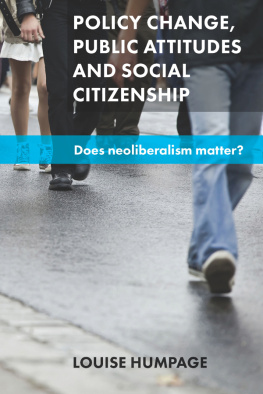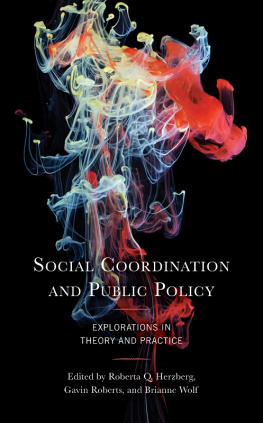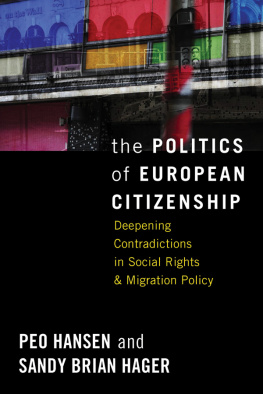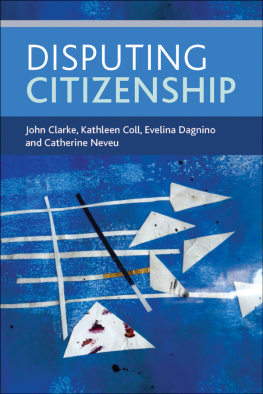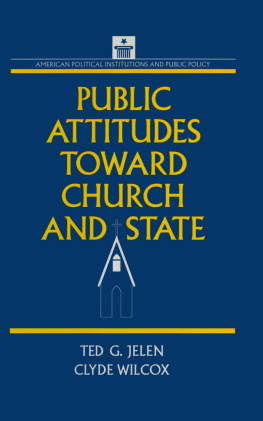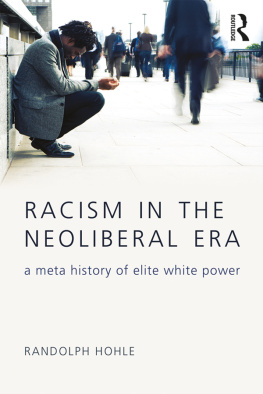Louise Humpage - Policy Change, Public Attitudes and Social Citizenship: Does Neoliberalism Matter?
Here you can read online Louise Humpage - Policy Change, Public Attitudes and Social Citizenship: Does Neoliberalism Matter? full text of the book (entire story) in english for free. Download pdf and epub, get meaning, cover and reviews about this ebook. year: 2014, publisher: Policy Press, genre: Politics. Description of the work, (preface) as well as reviews are available. Best literature library LitArk.com created for fans of good reading and offers a wide selection of genres:
Romance novel
Science fiction
Adventure
Detective
Science
History
Home and family
Prose
Art
Politics
Computer
Non-fiction
Religion
Business
Children
Humor
Choose a favorite category and find really read worthwhile books. Enjoy immersion in the world of imagination, feel the emotions of the characters or learn something new for yourself, make an fascinating discovery.
- Book:Policy Change, Public Attitudes and Social Citizenship: Does Neoliberalism Matter?
- Author:
- Publisher:Policy Press
- Genre:
- Year:2014
- Rating:3 / 5
- Favourites:Add to favourites
- Your mark:
- 60
- 1
- 2
- 3
- 4
- 5
Policy Change, Public Attitudes and Social Citizenship: Does Neoliberalism Matter?: summary, description and annotation
We offer to read an annotation, description, summary or preface (depends on what the author of the book "Policy Change, Public Attitudes and Social Citizenship: Does Neoliberalism Matter?" wrote himself). If you haven't found the necessary information about the book — write in the comments, we will try to find it.
Louise Humpage: author's other books
Who wrote Policy Change, Public Attitudes and Social Citizenship: Does Neoliberalism Matter?? Find out the surname, the name of the author of the book and a list of all author's works by series.
Policy Change, Public Attitudes and Social Citizenship: Does Neoliberalism Matter? — read online for free the complete book (whole text) full work
Below is the text of the book, divided by pages. System saving the place of the last page read, allows you to conveniently read the book "Policy Change, Public Attitudes and Social Citizenship: Does Neoliberalism Matter?" online for free, without having to search again every time where you left off. Put a bookmark, and you can go to the page where you finished reading at any time.
Font size:
Interval:
Bookmark:
PUBLIC ATTITUDES AND
SOCIAL CITIZENSHIP

A catalogue record for this book is available from the British Library.
A catalog record for this book has been requested.
| ACC | Accident Compensation Corporation |
| ACTU | Australian Council of Trade Unions |
| AES | Australian Election Study |
| AuSSA | Australian Survey of Social Attitudes |
| BES | British Election Study |
| BSA | British Social Attitudes |
| CHE | Crown Health Enterprises |
| GDP | Gross Domestic Product |
| GP | General Practitioner |
| GST | Goods and Services Tax |
| HSA | Health Savings Account |
| ISSP | International Social Survey Programme |
| MMP | Mixed Member Proportional |
| NGO | Non-governmental organisation |
| NHS | National Health Service |
| NZAVS | New Zealand Attitudes and Values Survey |
| NZES | New Zealand Election Study |
| NZH | New Zealand Herald |
| NZVAS | New Zealand Values & Attitudes Study |
| NZVS | New Zealand Values Study |
| OECD | Organisation for Economic Co-operation and Development |
| PADA | Personal Accounts Delivery Authority |
| PHO | Primary Health Organisation |
| RCSP | Royal Commission on Social Policy |
| RHA | Regional Health Authorities |
| TVNZ | Television New Zealand |
| UK | United Kingdom |
| WINZ | Work & Income New Zealand |
| WWG | Welfare Working Group |
Font size:
Interval:
Bookmark:
Similar books «Policy Change, Public Attitudes and Social Citizenship: Does Neoliberalism Matter?»
Look at similar books to Policy Change, Public Attitudes and Social Citizenship: Does Neoliberalism Matter?. We have selected literature similar in name and meaning in the hope of providing readers with more options to find new, interesting, not yet read works.
Discussion, reviews of the book Policy Change, Public Attitudes and Social Citizenship: Does Neoliberalism Matter? and just readers' own opinions. Leave your comments, write what you think about the work, its meaning or the main characters. Specify what exactly you liked and what you didn't like, and why you think so.

